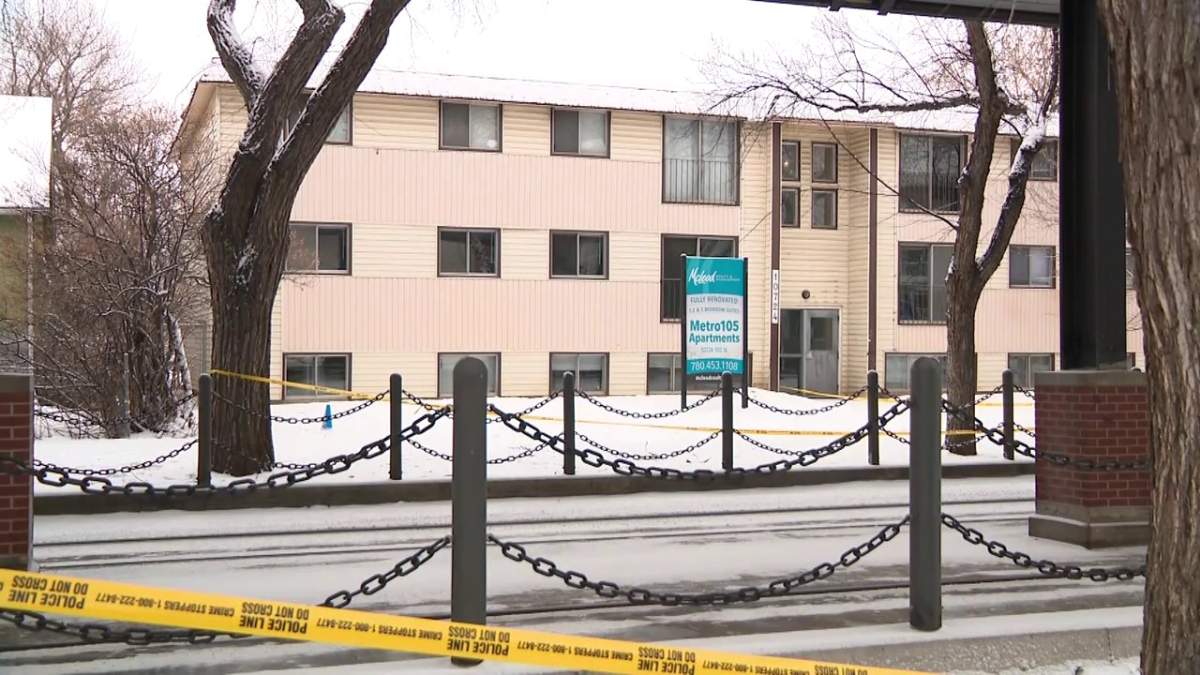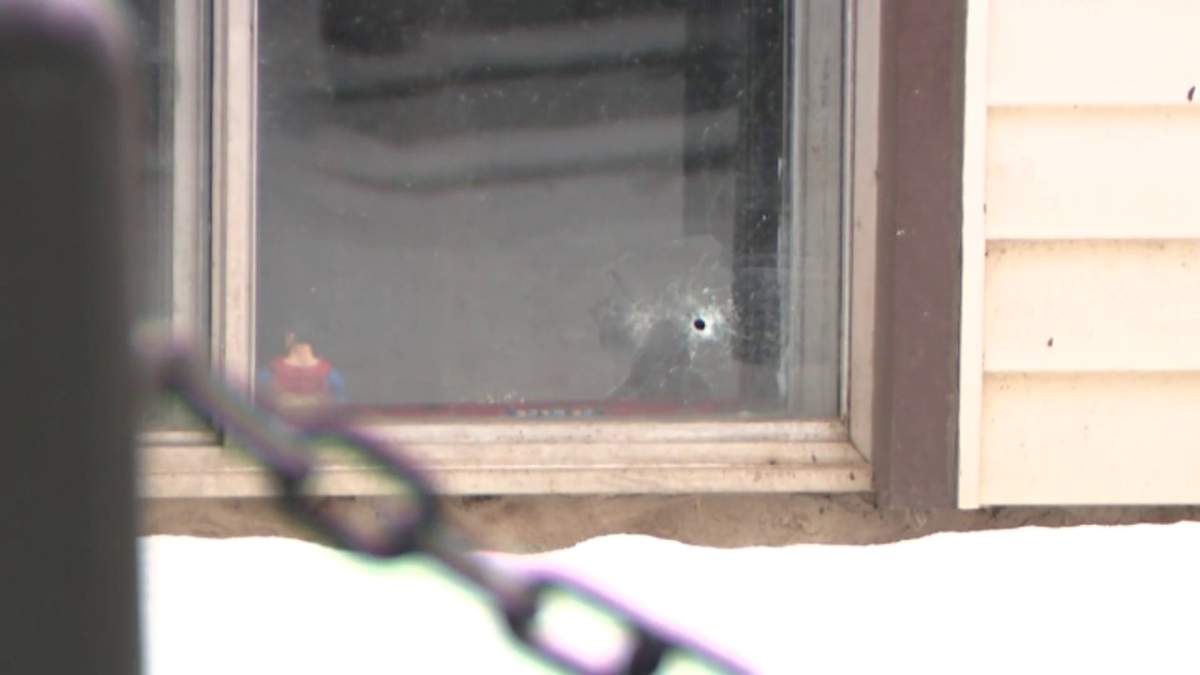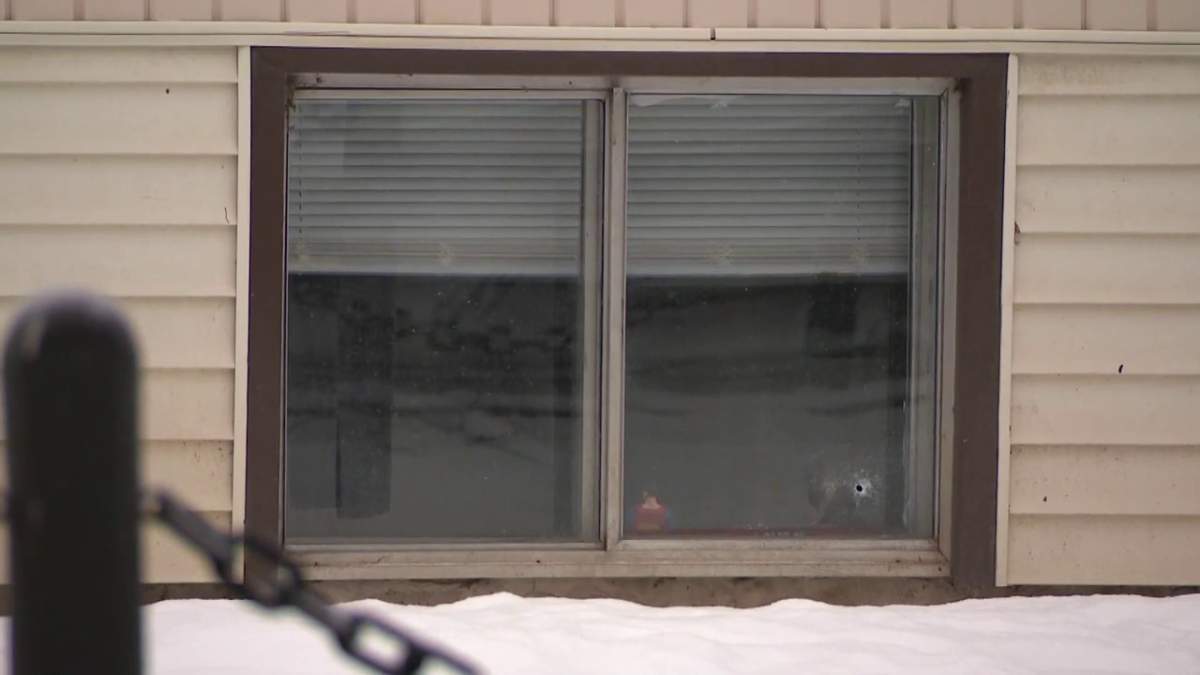Officers with the Edmonton Police Service were justified in their use of force during a shooting that left a robbery suspect and an innocent man dead nearly three years ago, the Alberta Serious Incident Response Team has concluded.

The police watchdog released its final report Wednesday on the double fatal shooting in central Edmonton on Feb. 23, 2022.
It started when police were called to a robbery involving a gun, believed to be either a sawed-off shotgun or rifle, at a liquor store near 113 Street and 104 Avenue just before 6:30 p.m.
The man allegedly threatened to shoot anyone that followed him, the report said.
Police who responded to the 911 call looked at surveillance video and about half an hour later, spotted a man who appeared to be the suspect in a bus shelter near 104 Street and 107 Avenue.
ASIRT said the man must have recognized the police as he took off running north on 105 Street. Three police officers ran after him, armed with two carbines and a service pistol.

The officers yelled after the man to stop and drop the gun, but ASIRT said he didn’t obey and kept running.
ASIRT said the man crossed west across the LRT tracks that run parallel to the road on 105 Street. He turned towards the pursuing officers, pointing the firearm in their direction.
Faced with the possibility of death, ASIRT said all three of the officers fired their guns at the suspect, who was hit and fell to the ground.
Officers later discovered he’d been carrying an imitation “BB” gun that looked like a sawed-off long gun, but didn’t know that at the time of the shooting.
An autopsy determined the 36-year-old robbery suspect died from multiple gunshot wounds and toxicology showed the presence of alcohol, fentanyl and methamphetamine in his blood.
ASIRT said the man was shot about 40 feet away from the Metro on 105, a walk-up style apartment building north of 107 Avenue along the LRT tracks.
While canvassing the scene after the shooting for possible errant rounds, officers noted several bullet holes in the exterior wall of the building, as well as in a ground floor window.
“Upon closer examination, EPS officers observed a motionless man slumped in a chair in the ground floor apartment.”

Get daily National news
Police went inside, saw a bullet hole in the man’s chest and provided first aid, but the man was declared dead in the hospital.
The bystander — 59-year-old James Hanna — died from a single gunshot to the chest.
His sister Susan Bandola said her brother had recently moved into the apartment in central Edmonton after becoming the building’s on-site manager.
Bandola said Hanna was sitting in a chair facing the television when he was hit. Bandola said an autopsy report she obtained showed the bullet that hit Hanna blew out the base of his hand, went through his left lung, hit his heart and landed in his right lung.

ASIRT said several bullets ended up going through the wall and into his apartment.
Hanna’s autopsy revealed the bullet recovered from his chest was a 5.56-caliber bullet, consistent with the bullets fired from both of the officer’s carbine rifles.
However, ASIRT said it could not be determined which of the two carbines had fired the round that hit Hanna.
“(Hanna) being shot was completely unintended, and his death is extremely tragic. The subject officers used lawful force against (the suspect) and clearly fired with no intention of hitting
anyone but (him),” the report said.
Criminal negligence causing death was considered as part of this investigation, but ASIRT said there was no evidence that an errant round struck Hanna.
The suspect’s autopsy found 12 gunshot wounds to his body: Two grazing wounds, eight through-and-through, and one wound that exited, re-entered, and exited again.
“It is possible that a round that went through (the suspect), entered (Hanna’s) apartment and then struck him,” the report said.
“As a result of the foregoing, there are no reasonable grounds to believe that the offence of criminal negligence causing death was committed.”
ASIRT executive director Michael Ewenson said in the end, the circumstances didn’t warrant criminal negligence charges as the officers’ conduct was deemed to be reasonable, given the circumstances and how, in a life-or-death situation, police have split seconds to make decisions.
“With the benefit of hindsight, time for detached reflection and knowledge of the ultimate outcome, it is easy to speculate about how things could have been done differently,” Ewenson’s report said about the use of force.
“That is not the standard, however, against which an officer’s conduct is measured. The question is, applying principles of proportionality, necessity, and reasonableness, whether the force used falls into a range of possible reasonable responses.”

Nearly three years following the fatal shootings, Ewenson said after a thorough, independent and objective investigation into the conduct of the officers, “it is my opinion that they were lawfully placed and acting properly in the execution of their duties. There is no evidence to support any belief that they engaged in any unlawful or unreasonable conduct that would give rise to a criminal offence.”
Ewenson noted Hanna’s death was a tragedy, and added questions such as whether his death could have been prevented through changes to things like policy and training are not within ASIRT’s mandate and instead, are commonly examined through processes such as fatality inquiry.
Hanna’s sister Susan Bandola has retained personal injury lawyer Norm Assiff, and two years ago she said she planned to take legal action after the ASIRT report has been released.
On Wednesday, Assiff said Bandola was angry about the findings but was not able to offer further comment.














Comments